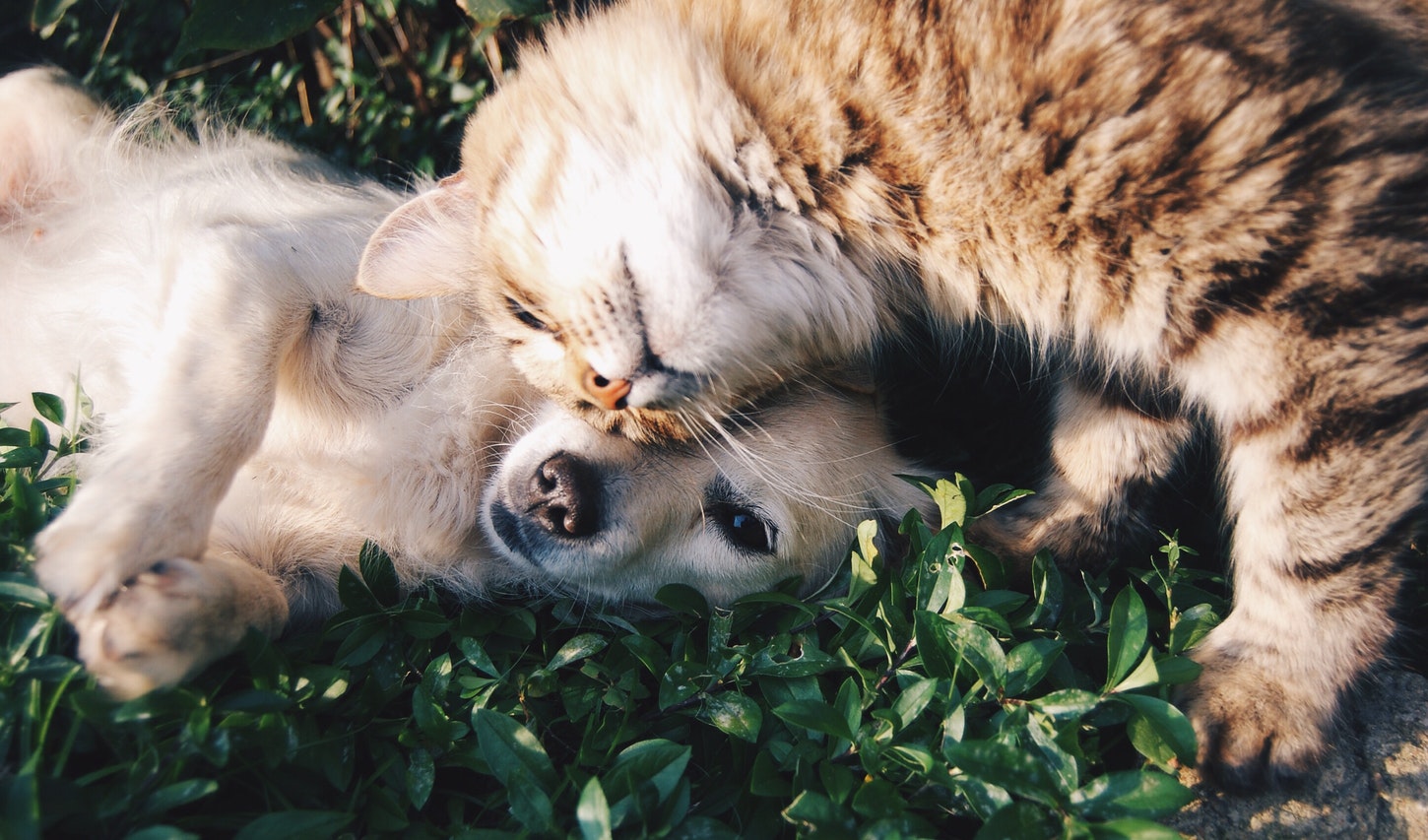What’s Mental Health got to do With Pets and Animal Care?

What does mental health have to do with animal care? In our Health Collective special, Amrita Tripathi interviews Canine Behaviourist Rajvi Mariwala for insight into some extreme stressors. Edited excerpts of our interview:
1) Can you share a little bit more on what you highlighted wrt mental health stressors in the animal care environment?
Companion animals or pets have been historically part of human society whether you’re considering the oldest domesticated animal, the dog, or others like cats, horses and birds. Pets are seen as part of the family more now than they have ever been before. This is because with most pets, there is interaction, communication and considerable emotional engagement.
For some, pets are their babies, family members, familiars, companions or best friends. Many pets, especially dogs, are seen to provide ‘unconditional love.’ This is seen in nomenclature used — furbaby, furkid, child, baby and pet parent, or just parents. Pets and their needs add structure and routine to people’s lives. This has led to not just a panoply of pet products, but also a service industry. Thus, it is not just pet parents whose concerns need to be taken into account, but also, professionals who cater to companion animals such as Veterinarians and vet techs, trainers and behaviourists, groomers, pet sitters and kennels, as well as animal rescue workers.
Numerous studies done in places such as UK, Australia and USA have shown that veterinarians and animal rescue workers have much higher than the average suicide rate. They have to deal with cases where the prognosis may not improve as well as animal cruelty cases. I couldn’t find any data or information on trainers, pet sitters or groomers. Nor could I find any India-specific information.
(Editor’s Note: For Further Reading, check out this piece in Psychology Today)
2) What can you tell us about this survey you mentioned (of animal care professionals) and stressors?
Recently, there were news stories of two people who killed themselves in Bangalore because their pet dog died. I have received many calls and heard many narratives from people who have had trouble coping with a loss of a pet. Even personally, when my first pet dog died, I slept with the lights on at night for 2 months because I could hear his nails on the floor every night.
Additionally, in conversations with vets and trainers I knew, we’d eventually circle back to how stressful work could be. So, I approached iCall to see whether they were interested in learning about and providing services for persons who lived or engaged with companion animals. To prepare better, I designed and carried out a survey of animal care professionals to learn about stressors as part of a training for iCall helpline.
Using the snowball method, I received responses from over 30 vets, 55 trainers, 60 animal rescue workers, over 35 pet sitters/ kennels and 7 groomers.
46% of respondents said that their daily stress levels were 5 or higher (on a scale of 1-10) and 68% faced sadness/ feeling low/ depression after starting this work.
More than half the respondents said that their biggest stressors were:
- Helplessness due to pet owners or people not heeding advice
- A dim chance of improvement in a situation
- Charged emotional situations and pressure
- Frequent deaths and euthanasia
There is also a common thread of very long work hours, insufficient income and stress from family since you are seen not to be in a proper profession. Furthermore, 33 respondents reported facing verbal harassment/abuse/ violence from clients, 25 respondents each said they have been attacked on social media and by neighbourhood and society. People also reported similar harassment from family, friends and peers/coworkers.

(Image courtesy: Raw Pixel)
3) Is there any insight or any anecdotes you’d want to share on working with animals — eg strays. I get a sinking suspicion there’s a lot to be said about animal cruelty, for example, the news story this evening on 150 dogs having been found poisoned and buried?
Working with pets or animals who live on streets, is never working with the animal alone, but also with the humans around it. For vets, trainers, groomers and sitters, this means dealing with unreasonable demands, lack of respect, a pressure to provide quick results as well as constant calls and messages after work hours, including at 4 am.
This group as well as animal rescue workers see a spectrum of cruelty towards animals ranging from neglect to apathy to cruelty to torture. Whether it’s a family who may live with the dog, or human-animal conflict on the street, dealing with this means experiencing what is commonly referred to as compassion fatigue or secondary traumatic stress disorder.
For the animal rescue workers, a work-life balance/ personal limits may be even harder to negotiate. As one respondent said, “The stress is related to the adoptions of fosters, people promise to help but then go silent, potential adopters are sometimes very disappointing. Also the stress of handling very very young animals, the fear of losing them, waking up at all hours to check on them.”
“Too many animals come for help. Too few resources. I am physically and mentally tired. Feel that I cannot cope. Also cruelty cases really really affect me badly. Also people take advantage of us through animals. That bothers me.”
… Certain situations like advising euthanasia, telling a family their pet needs to be re-homed, or putting a puppy without a home back onto the streets is so emotionally loaded.
For example, I had to tell a family to give up a dog they had recently adopted, for both their sake and the dog’s sake. I saw to it that an appropriate foster and NGO would be part of re-homing. However, the husband of the family made me listen to his wife and kids cry and wail “because of” my professional assessment. I disengaged from the situation only to learn that two people got bitten a day after that and the dog had been palmed off unscrupulously.
Additionally, for all of us professionals, we face the risk of being injured by an animal in the routine course of our work. What hit me the hardest on going through the results of the survey, was responses to question on mechanisms used to cope with work related stressors. Of 115 written answers, only 7 spoke to others about their distress.
Luckily, 90% of respondents thought it would be a good idea to have access to a telephone service (with those) who have been trained to understand this work, where one could reach out for mental health support.
ALSO SEE: COUNSELLORS, THERAPISTS, HELPLINES
4) In terms of pet owners — what are some of the common issues that come up, where counselling might play a role? Eg grief over a pet passing away… And what are some coping mechanisms to share, for example with children?
While the above (especially nomenclature) attests to the unique bond pets share with the humans they live with, this anthropomorphism can cause problems for both the quadruped and biped. For people who live with companion animals, there can be a few major stressors that other family members, friends and work spaces may not understand or be open to. These can be if their pet practices a problematic behaviour or aggression, chronic illness, a pet getting lost or the death of a companion animal.
For many people, family and friends do not understand or treat as less than when you have to care for or grieve over a pet — the legitimacy of the grief is called into question (For example: It’s just a cat, you can go get another dog today).
There are no grieving rituals to help cope. One’s daily life rhythms may be altered drastically with the death of a pet, i.e. walk timings, feed timings or even opening the front door is never the same again. This makes a loss all the more palpable.
For children, it’s best to be honest, talk about their feelings and be honest about expressing yours. Allow your child to memorialise the pet her own way with art writing, or a ceremony.
5) Basically to sum up, is there anything you’d like people to know — 2/3 things you wish everyone knew about mental health and animal care?
-
Feelings about your pets/animals/you live/work with are legitimate and do not feel worried or ashamed to talk about it to supportive individuals or professionals.
-
Know and respect that pets are support systems and chosen family for many persons across ages, classes, castes, sexualities, genders and abilities.
Views expressed are personal. Material on The Health Collective cannot substitute for expert advice from a trained professional. Your comments are welcome @healthcollectif.



